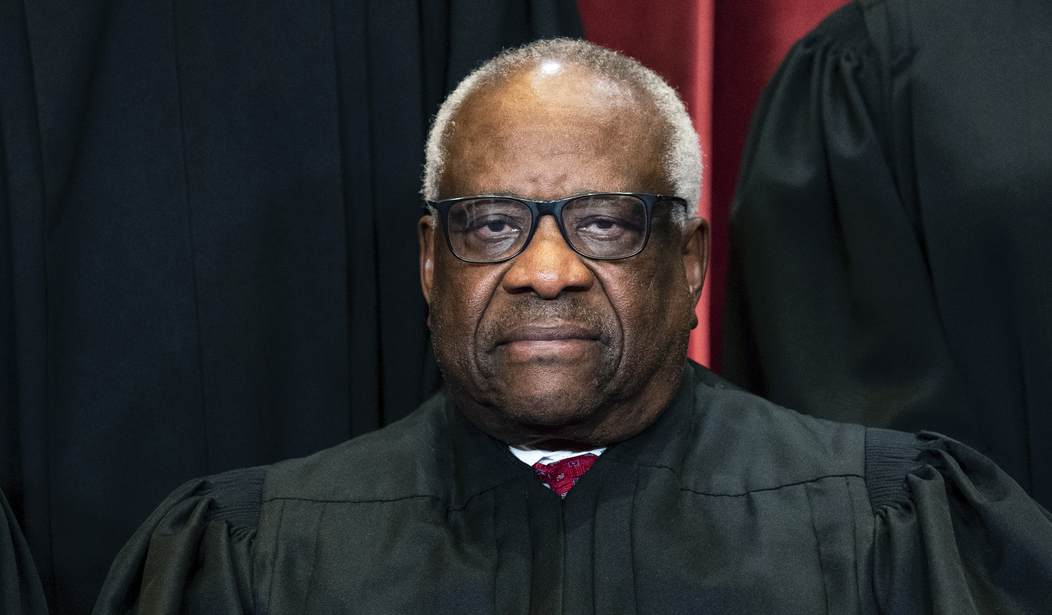Is the trend toward institutional nihilism — especially aimed at the Supreme Court — a problem of polarization, or immaturity? Clarence Thomas says … yes. In a speech at Notre Dame, the most senior member of the court deplored the impulse to demolish institutions over the lack of instant gratification they provide, but also echoed Stephen Breyer and Amy Coney Barrett in defending the justices from accusations of politicization:
Justice Clarence Thomas defended the independence of the Supreme Court on Thursday and warned against “destroying our institutions because they don’t give us what we want, when we want it.”
Thomas, the longest serving justice, acknowledged that the high court has its flaws, comparing it to a “car with three wheels” that somehow still works. But he said the justices are not ruling based on “personal preferences” and suggested that the nation’s leaders should not “allow others to manipulate our institutions when we don’t get the outcome that we like.”
The justice’s remarks came during a lecture at the University of Notre Dame in which he talked about traveling by RV in the mountains of North Carolina and Tennessee with his wife, Ginni. Thomas reflected on his childhood in the segregated South and his religious faith. He also alluded several times to the political polarization in the United States.
“We’ve gotten to the point where we’re really good at finding something that separates us,” Thomas told the crowd of more than 800 students and faculty gathered at the school’s performing arts center.
That could be chalked up to an over-engaged electorate, if such a thing could possibly exist. It’s more likely the result of both political parties taking the strategic decision to stop engaging with voters outside their coalitions and instead focusing on “firing up” their respective bases. That has all sorts of negative consequences in terms of polarization, including the status quo over the last twenty years of gridlock even on basic budgeting.
There’s no doubt, though, that the Supreme Court has become one of the main institutions caught in that crossfire. Furthermore, it can’t compete in that polarized-partisan atmosphere. The Supreme Court doesn’t have an electorate, let alone a base to fire up on its own. Decades of judicial activism that preceded recent courts has made it into a political spoil for elections, and the judiciary wars in the Senate over the last two decades are the result.
This year, however, the justices appear to have had enough. One could chalk up Breyer’s public tour as the need to promote his book, but he wrote his new book in large part to fight back against charges of polarization and politicization on the Supreme Court. Barrett and Thomas have now come out on the same theme, putting three of the court’s more controversial members on the campaign trail too, so to speak.
The period between terms has always offered justices the time to engage publicly, and often talk about the collegiality of the court, but this time it feels different. The political environment has changed, and perhaps the justices have decided that it requires a more robust defense of their own institution before it gets gutted by the nihilists, and with it the independence of the judiciary and the rule of law to boot. If so, then Thomas and his colleagues have accurately diagnosed the tenor of our times — and hopefully will continue to push back against it.








Join the conversation as a VIP Member